China and Russia Pose an Array of Dangers to the West
China and Russia represent two of the most robust, comprehensive concerns to worldwide stability. Almost every major geostrategic threat—cyber attack, nuclear weapons, ballistic missiles, capable military forces, political influence, economic power, sources of and high demand for energy—is resident in those two countries that often find themselves at odds with the United States and its allies. Decisions by their leaders on how to engage with the rest of the world, and how the two sovereign states decide to relate to each other, will have major effects on geopolitics.
“First off, China is not the former Soviet Union, and that’s very important,” says Dean Cheng, senior research fellow, Asian Studies Center, The Heritage Foundation. Nor, actually, is present-day Russia, which means lessons learned from facing many of the same threats during the Cold War no longer apply, though some issues carry over when dealing with Russia. A major reason the Chinese relationship is different is the enormous trade level between China and the United States, which generate shared interests.
However, conducting business with Chinese groups comes with its own set of issues. “China has a very different view of intellectual property rights, in that it doesn’t respect them very much,” Cheng says. The country engages in cyber espionage both on governments and private entities, he adds, noting that apparently the United States does this as well. China also conducts cyber operations to benefit its private companies, such as in one incident where it stole information on the genetic engineering of a crop. The commercial espionage reflects the Sino threats both in cyber and in regard to intellectual property rights. China also is greatly expanding its space program, opening a range of additional threats (SIGNAL Magazine, October 2013, page 41, “China in Space”). Reports and activities coming out of the country reflect that it now is a direct competitor to the United States and Russia in terms of satellite navigation capabilities, with discussion emerging around the United States possibly needing to rely on China for weather information in the future.
The cyberthreat poses some unusual challenges, especially because it is a relatively new development. Views on how to handle the problems vary greatly between East and West. Dr. David Lai, research professor of Asian security affairs at the Army War College (AWC), explains, “The main difference between China and the United States is this—the United States is following the Western traditions of a rule-based society.” This means, for new problems, Americans like to develop a code of conduct that eventually turns into rules and regulations. “But the Chinese don’t have that tradition,” Lai explains. “For thousands of years, the civilization was ruled by man, not by law.”
What appears to the West as wrong seems valid to the Chinese. In principle, China and the United States have agreed to work together to make cyberspace safe and fair. Both sides have suffered from attacks. But in cyber, even delineating what counts as an attack, let alone determining where it comes from, can be difficult or impossible.
Cyberspace, space and maritime domain dominance were made the priorities of the People’s Liberation Army several years ago. The military began building up its navy in response, buying and developing platforms and capabilities to make it a power in blue-water operations, adding to its brown- and green-water resources. In addition to surface and subsurface vessels, Cheng says, signs of possible expansion of the naval infantry are showing, along with modernization of naval aviation, longer-range capabilities, anti-ship cruise missiles and anti-ship ballistic missiles.
Maritime prowess causes concern for several reasons, perhaps most notably because of the territorial disputes China has with several of its neighbors, including Japan and South Korea, in the waters surrounding the countries. The United States has treaties with several of these East Asian nations, meaning that should they engage in conflict with China over any of the various controversial islands or passages, U.S. resources would be committed to assistance. The waterways around the islands are important for commerce. As more Southeast Asia nations operate in the area’s oceans with an increasing number of vessels, the chances for interactions, and thus issues, increase.
Even flying is problematic, with China last year declaring an air defense identification zone in areas above spaces it claims in the East China Sea. Reports emerged earlier this year about similar plans for the South China Sea (see page 29). Cheng explains China believes much of the First Island Chain is rightly in its boundaries and part of its national territories. From its perspective, it wonders why other countries are challenging China.
Lai says development of China’s naval capability catches the most U.S. military attention. The various unsettled territorial disagreements, coupled with a powerful navy, make the situation troubling. Beyond China fighting for space with its near neighbors, the development of the blue-water power makes it formidable in the Western Pacific. “It just runs into American naval power everywhere,” Lai explains. The United States has had almost no threat to its maritime operations in almost 60 years and tends to take benefits such as freedom of navigation for granted, almost feeling as though challenges infringe on the country’s rights. “It’s very hard for a superpower to take any change,” Lai says.
Such run-ins already are occurring. Last December, the USS Cowpens guided-missile cruiser came into close proximity with a Chinese warship in the South China Sea in what the United States military called a deliberate act. Each side accused the other of wrongdoing.
Sino naval developments also mean China can become more global, results of which already are evident such as in anti-piracy efforts in the Gulf of Aden. Chinese resources are aiding with the search for the Malaysian Airlines flight that disappeared, showing off its maritime capabilities in a way that indicates growing Chinese ability in that domain. Furthermore, a large number of the passengers were Chinese, so calls from citizens demand action. The government has done a good job pointing fingers at Malaysia and avoiding much direct criticism.
China continues to advance as a rising power, and it would like to take over the top position in the world from the United States through peaceable measures. However, in what Cheng calls “one of the great ironies,” China questions the stability of its own political system while admiring the stability in the U.S. system.
Though Russia and China are not allies, they are in agreement about wanting the United States to keep away from the other and from themselves. The United States brings them together in their mutual disdain for U.S. involvement. Lai explains, “No other nation has the capacity to do that.” They want the United States to stay out of Asia. Geostrategically, China is not allied against the United States with Russia, but could complicate matters through the United Nations or direct challenges. A Crimea-type issue could also emerge in the areas claimed by China and nations allied with the United States. Cheng says that with such a possibility, “We have an interesting risk.”
Chris Chappell, host of China Uncensored, a Daily Show-type YouTube program focused exclusively on Sino issues, asserts there are many reasons to question the actual economic state of China. However one thing is clear: “China is going to be a major player on the world stage, but China under Communist rule has been governed by a single ideology. ... That’s a very dangerous policy for a global superpower.” He argues this limited focus has led to the tense standoffs over territories, rampant cyberterrorism and intellectual property theft that costs the United States alone $300 billion a year.
Perhaps even worse, the same thought process has caused immense internal damage. “Years of suppression and propaganda have created a cultural dark ages in China, and this is bad for the whole world,” Chappell says. The Western world has shortcomings, “but many of our weaknesses are the strengths of traditional Chinese culture, and vice versa ... as long as propaganda and soft power are the only exports from China, there can be no true meeting of East and West. And that’s bad for everyone.”
Lai contends that the Chinese believe they have the potential to offer a richer culture than Japan did when it become an economic superpower in the 1970s and 1980s. In a cultural sense and in other ways, the country wants to take back what it sees as its rightful place in the world. Lai says that mindset is a factor to watch.
A troubling issue is the propensity of the government to blame the West for all problems or to create large scandals—often untrue—about the West to divert attention from true problems within China itself. Lai explains that generations of Chinese were brought up thinking all problems result from the Western way of life.
He says it makes sense at this stage that the government would exercise authoritarian rule. However, instead of trying to change the traditional order in China and offering a whole new set of values, the government would do better to converge old and new values. The melding should ease situations for the government as inevitable social, economic and political changes occur.
Lai says the main geostrategic threat China poses is in its transition framework with the United States, triggered by China’s rise. The U.S.-led international order and political, security and economic systems have been in place since after World War II.
Lai remarks that many analysts question whether there is a power transition and if China qualifies as a contender. “I want to take it a step further,” he states. “Not only is it real, it has entered the second stage already. The indicator is certainly the continual rise of China. ... Economy is a driver for everything and national politics in particular.” The first stage involved the country’s economy taking off and beginning to grow; the second stage is a rapid rate of economic growth on a rising trajectory without indications of leveling off.
China has several internal problems to overcome, but it has a good chance to muddle through them and become equal to or surge past the United States in certain aspects. One of those is the economy, which could surpass that of the United States when it reaches its potential and then empower everything else that threatens the West. “That’s what makes China such a big phenomenon,” Lai says. It also differentiates China from the Soviet Union, which built a military on hollow ground, while the Sino plan involves developing markets that can fund the military.
Though economic parity between the two major powers is still far off, China keeps coming closer, so this second stage of transition should last a long time. Chinese leaders are looking out 20 to 30 years—including President Xi Jinping, whose expressed vision extends to 2050. As the second stage progresses, several issues should require attention, including the potential of China challenging U.S. power in the Asia-Pacific region, becoming more ambitious as an outgrowth of national power. “The upstart will become more assertive,” Lai states.
It is possible to compare the power indexes of countries to come up with ratios and then decide what ratio reflects China as a qualified contender against the United States. “I think that would be too scientific,” Lai says, adding that such measurements are too restrictive. As long as China continues to rise, it has the possibility to reach problematic levels. However, its leaders need to be careful not to overestimate its abilities as it grows, make too-ambitious choices and then stumble over the rise. The United States should avoid the natural tendency to overreact to what the rising power does, Lai says, inflaming situations that could pass with less conflict otherwise. Combined, the two create a difficult situation in the power transition.
Russia, though no longer the Soviet Union, presents some of the same and some different geostrategic threats to the world. Dr. Ariel Cohen, senior research fellow in Russian and Eurasian studies and international energy policy, The Heritage Foundation, says the situation between Russia and Ukraine is only a symptom of the former turning away from the West, abandoning even the pretense of a liberal democracy. “It’s a process that started about 14 years ago,” he explains. “It is now sort of moving back in time, not just to the Soviet era, but in many respects to the czarists era that is categorized by extremist nationalism with a lot of racism thrown in for good measure. It’s anti-everybody. It’s anti-Ukranian. It’s anti-Muslim. Now it’s increasingly anti-Semitism.”
Over the past years, many dots have emerged to indicate the Crimean invasion. “The people who failed to connect the dots were looking at a microscope when they should have been looking through a telescope,” Cohen states. Such dots include Russian President Vladimir Putin declaring the collapse of the Soviet Union as the greatest debacle of the 20th century and the declaration that hundreds of billions of dollars would pour into military modernization. Special attention was paid to the Spetsnaz, the elite Russian special operations forces. The pipeline that bypassed Ukraine is another dot, along with handing out Russian passports to people who live in Crimea. Former President Dmitry Medvedev declared Russia would protect Russians and Russian speakers anywhere they resided. “That was another indication, and people should not have missed it,” Cohen states, adding that with such an intelligence failure, the United States should re-evaluate its systems. He asserts there is an overreliance on technology versus human knowledge and expertise.
Debate surrounds whether Russia’s actions in Crimea and toward Ukraine stem from power or weakness. “People do not grab large swaths of strategic Black Sea Coast, first in Asia, then in Crimea, because they’re weak, without firing a shot basically,” Cohen states. Seamless intelligence and the work of special forces is required. Perhaps more concerning to the United States is interest by Russia to expand its military ties with countries in South America, putting Russian influence and potentially capabilities in the United States’ backyard, if Russia can marshal the resources to do so. “We are in a geopolitical conflict with Russia,” Cohen says.
Increasing the problems is NATO and all that goes along with it. The organization was created to be anti-Soviet Union and remained in place after the latter fell apart. Russia still must contend with its existence even as NATO denies Ukraine and Georgia membership, which Cohen believes invites Russian aggression. The United States demonstrates a lack of interest in areas formerly belonging to the Soviet Union, increasing chances of Russian expansion into those areas. Cohen believes more ambiguity in U.S. strategy could make Russia more insecure. “They extrapolate better than we do,” he explains. “Putin connects the dots.”
NATO’s enlargement has a profound impact on Russia as a country that lost an empire. Russia put up less of an opposition to countries joining the organization in the 1990s as it contended with the end of the Soviet Union, but as it gained strength, it began to fight inclusion of more countries. Russians feel deeply connected to certain nations in particular, such as Ukraine and Georgia. They believe their alignment with the West would be worse than some other countries because of the deep historical connections and cultural ties between Russia and those nations. John Beyrle, U.S. ambassador to the Russian Federation from 2008 to 2012, explains Russia has a hard time dealing with the Baltics unemotionally. “World War II for Russia has not receded into history like it has for us,” Beyrle says.
Beyrle says U.S.-Russia interactions continue to be important if for no other reason than the huge amount of nuclear weaponry still in that country’s arsenal. “We’re always fated to try to find some way to work with Russia,” he explains. Western Europe and the United States are disinclined to military interaction with Russia over former Soviet states, and economic sanctions only are beginning to hit Russia’s economy. Beyrle says for them to work, European measures must be more robust than U.S. ones. Though he says he cannot be sure, the early economic effects may be the reason Putin halted military advances in Crimea without proceeding to the Ukraine.
Another area of potential threat with Russia and China is the Arctic. As polar ice caps melt, more maritime domain opens, along with access to energy sources. However, Beyrle believes climate change is an area where Russia and the United States can work together; already they have cooperation on scientific efforts. The goal, he explains, is to look at the Arctic through a scientific lens, not a military one, adding that the flag Russia planted under the North Pole has about as much meaning as the U.S. flag on the moon, in terms of territorial claim.
Dr. Craig Nation, professor of strategy and director of Russian and Eurasian studies, AWC, says Russia should not regard NATO enlargement as a threat, as it has no aggressive tensions. NATO’s ability to create more peace and stability in the area works to Russia’s advantage, but the country “doesn’t always see it that way,” Nation explains. “There is a friction there.” But it is a friction that can be overcome, he adds. “I think one thing that needs to be considered is the need to coexist with Russia in the long term,” he says. Nonetheless, Russian leadership has articulated the perspective that NATO remains a Cold War entity with anti-Russia orientation, a perception difficult to address. The Ukraine situation reinforces the perception. Nation believes the United Nations may be the ideal forum for reaching a working cooperation with the Russian Federation in areas of shared interest.
Nation views several facets of Russia’s goals and threats differently than Cohen, believing President Obama had it correct when he said Russia’s policies are “something of a weakness.” He does add that the actions in Crimea to annex a territory attached to a neighboring state has a threatening connotation. “This is not a precedent one would like to see reinforced,” he explains. Though all activity requires context, the move itself is destabilizing. Russia poses potential threats to its neighbors and wants to sustain and build alliances globally, but it has limited means to do so. Nation sees no signs of any threat of Russian engagement in Latin America that could remotely parallel the Soviet Union and Cuba. “So to use ‘threat’ in regard to these somewhat annoying but not particularly dangerous engagements seems overblown,” he sates.
He echoes Beyrle, mentioning that nuclear weapons make Russia difficult and threatening. Russia might not have the resources to establish power in the neighborhood of the United States, but neither does the United States have military assets in place to challenge Russia in its own domain. As a worst-case scenario, Russia could devolve to anarchy and lose control over its nuclear arsenal. With the fall of the Soviet Union and establishment of new sovereign nations, four nuclear states replaced one, though Belarus, Ukraine and Kazakhstan have since relinquished their arsenals. The situation of chaos is unlikely, however. Russia has a weak economic model, and Nation explains the long-term outlook for stability in that country and its neighbors is not “a particularly happy one.”
Diplomacy can help ease threats by avoiding an escalation of tensions while delineating intolerable actions and avoiding unilateral concessions. “We can talk about isolating Russia and sanctioning as punishment, but it won’t go away,” Nation says. “It’s a large nation and has power resources. It will be necessary to work with it one way or another.”
Putin’s agenda appears to include reasserting Russian influence. Part of that involves a concept similar to the European Union with surrounding states. Ukraine, in particular, is desired in this organization, because of its close ties to Russia. Russia’s measures to support people with Russian ethnicity and for referendums such as the one in Crimea have a great deal of popular support at home.
Again, though Russia may or may not be a military threat globally, the country wants to reconstruct itself to greatness. Russia is reemerging with a deep-rooted nationalism. “It’s very scary if you’re a small, fragile nation nearby,” Nation says. Another concern with Russia, as with China, is cyber operations. “Cybersecurity has become a huge concern in international security affairs generally,” Nation explains. “I think we tend to view Russia more as part of the problem than the solution right now.” Russia has been tied to cyber attacks, including one on Georgia before it invaded that country in 2008.
In terms of the Russia-China relationship, Nation says threats from a Moscow-Bejing axis are overrated. The two countries are the leaders of the Shanghai Cooperation Organization that also includes Kazakhstan, Kyrgyzstan, Tajikistan and Uzbekistan. Superficially, the two powers try to assert an enduring cooperation, but they have many disagreements, including how China penetrates to other parts of Asia. “Russia can’t really do anything about these situations,” Nation explains. “It’s a junior partner in its relationship with China. This is a big change in how things used to be.”
For the West, working through problems with Russia, in relation to and apart from China, will be a protracted and difficult process, Nation continues. Potential exists to do lasting damage to the relationship, which is against everyone’s best interests.
Statements by members of the AWC are the analysts’ own and do not necessarily reflect the institution’s position.
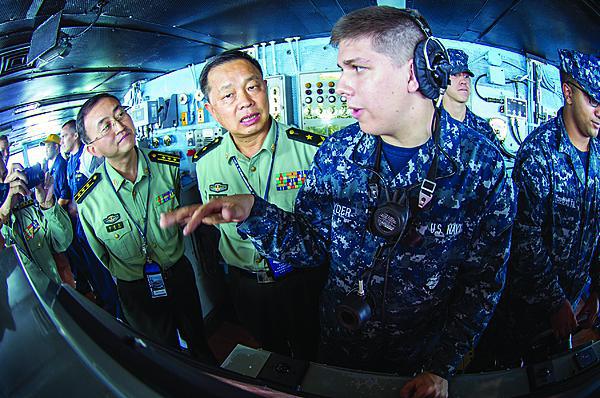
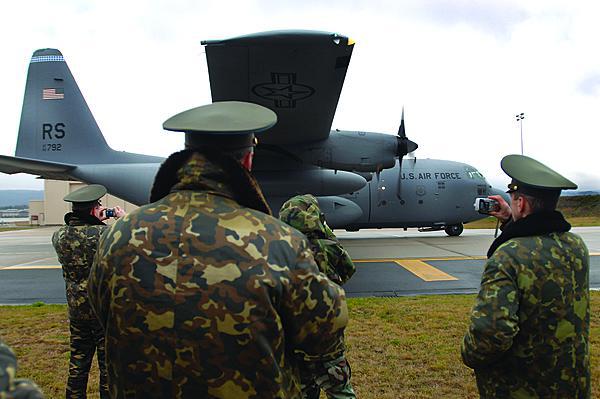
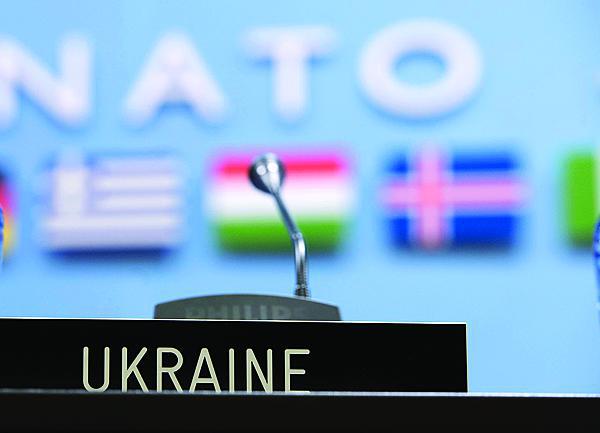
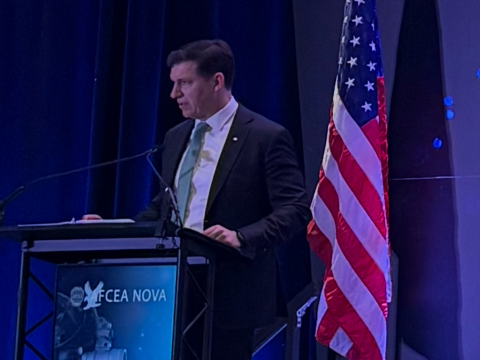
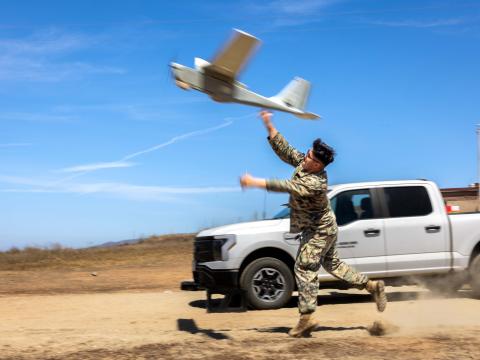
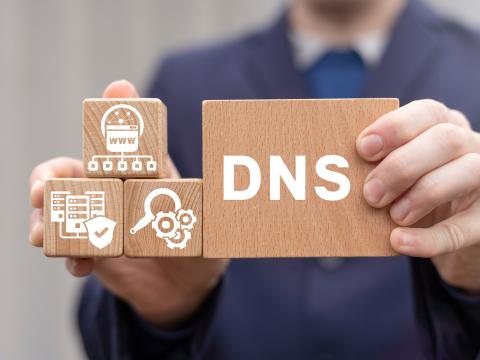
Comments